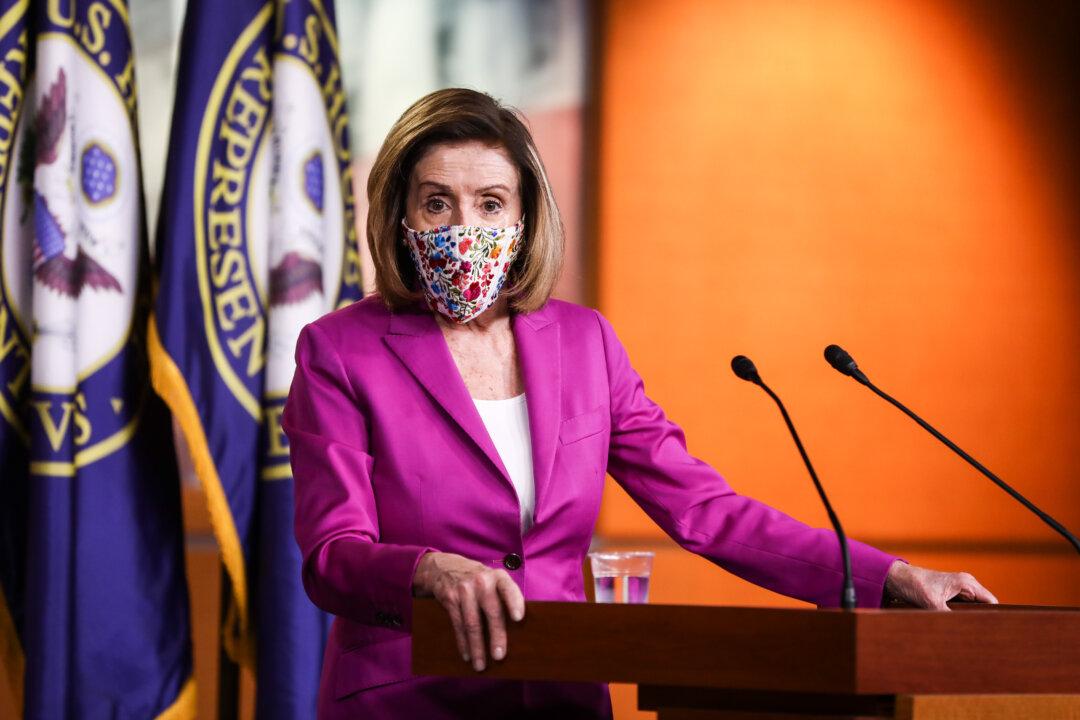House Speaker Nancy Pelosi (D-Calif.) defended delaying the passage of the COVID-19 relief measure and its associated second round of stimulus checks, telling CBS’s “60 Minutes” in a wide-ranging interview that holding out on the bill was because Republican proposals didn’t go far enough on social justice.
Host Lesley Stahl said that there was obstruction from both Democrats and Republicans before the $900 billion relief bill was at long last adopted.





